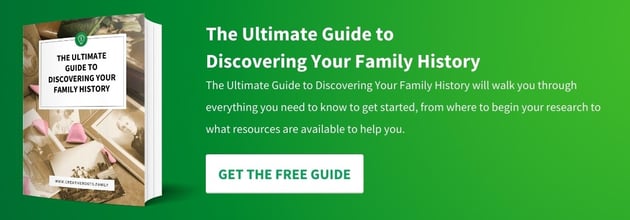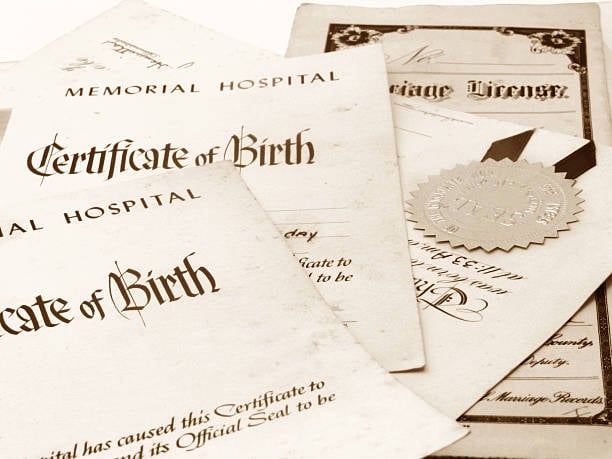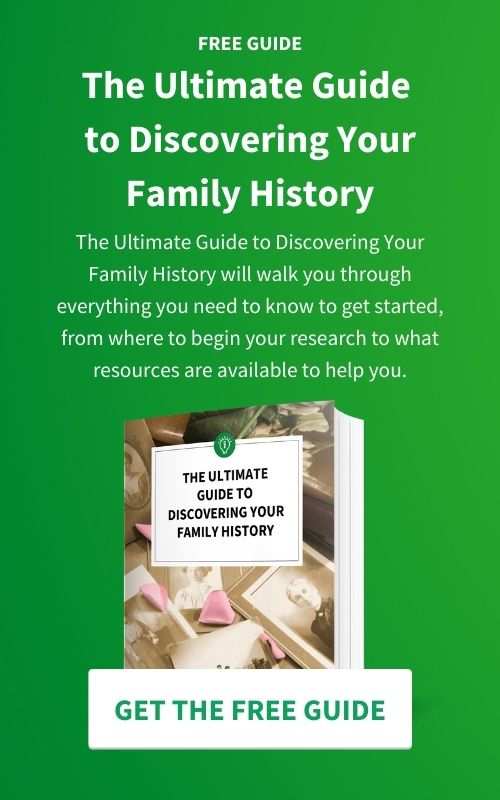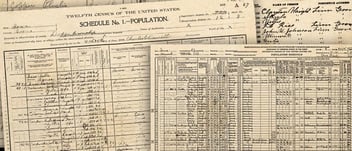Get Started on Your Genealogical Journey with These 5 Steps
STEP 1: Talk to your family members
STEP 2: Gather Documents
Birth certificates, death certificates, marriage licenses, naturalization papers, and obituaries can all help to provide information about your ancestors. These documents all provide useful information about your ancestors. It is important to gather as many of these documents as possible, as they can often provide key clues about your family's history and other family information. For example, an obituary can offer not only information about the deceased but the family as well for generations before and after. Take note of the little tidbits of information that can be found in all documents.
STEP 3: Use Online Resources
The internet has made it easier than ever to research your family's ancestry. There are several websites that offer helpful resources for genealogical research. One of the most useful is FamilySearch, which is a free website run by the Church of Jesus Christ of Latter-day Saints. FamilySearch has a vast collection of documents and records that can be helpful in tracing your family history.
There are many different resources available for researching your family tree. However, it is important to be aware that not all resources are created equal. Some resources are more reliable than others. When in doubt, it is always best to consult with a professional genealogist.
- Online research sites
Online research sites can be a great resource for finding your ancestors. These sites provide access to databases of information that can help you trace your family tree. In addition, these sites offer tips and tutorials on how to conduct genealogical research. So, if you are looking for information about your ancestors, be sure to check out online research sites! Be aware many of these sites are available by subscription service. Check your local library or visit a Family History Library for access through their institutional subscription.
Top Five Online Research Sites to help you get started:
-
- Ancestry.com (Subscription-based - limited free access)
- FamilySearch.org (Free Access)
- Findmypast.com (Subscription-based - limited free access)
- MyHeritage.com (Subscription-based - limited free access)
- Rootsweb.com (Subscription-based - limited free access)
- How Wiki Pages Can Help Your Research
Wiki is a collaborative website that allows users to add, edit, or delete content.
The FamilySearch Wiki is a great place to start your family history research. It contains information on how to conduct your research, where to find records, and how to find genealogical societies and family history centers. The Geni Wiki is a collaborative website that contains information on over 60 million ancestors. It is a great place to find records.
STEP 4: Visit libraries and archives
The use of research guides from archive sites can be extremely helpful in family history research. These guides can provide you with information on where to find specific records, as well as how to use those records to find information about your ancestors. In addition, these guides can often provide you with contact information for genealogical societies and family history centers.
If you get a chance to experience visiting an archives center, do take it. Some records may only be available at a location and not online. When visiting the site, be sure to review the information about site visits as there may be some restrictions or processes you need to be aware of. For example, if you require a copy of a document you may need to order it ahead of your visit so its available when you are on site.
- National Archives and Records Administration (United States)
The National Archives and Records Administration is a great resource for researching your family history. They have a wide variety of records that can be searched, as well as a research guide that can help you get started. - The Library of Congress (United States)
The Library of Congress is another great resource for research, and its website has a variety of tools that can be used to find information about your ancestors. - Library and Archives Canada
The Library and Archives Canada (LAC) is a great resource for genealogical research. It has a wide variety of records that can be searched, as well as a research guide that can help you get started. In addition, LAC often has special collections and exhibits that can be used to further your research. - Provincial or State Archives
Provincial or state archives can be a great resource for researching your family history. These archives often have a wide variety of records that can be used to find information about your ancestors. In addition, they often have special collections and exhibits that can be used to further your research. - Visit Family History Centers or Genealogical Societies
Family history centers can be a great resource for those who are interested in researching their family history. These centers have a wide variety of records that can be searched, as well as staff who can help you get started on your research. In addition, family history centers often have resources such as books, newspapers, and microfilms that can be used for research. Genealogical societies can also be a great resource for those who are interested in researching their family history. These organizations often have resources such as books, databases, and microfilms that can be used for research. In addition, genealogical societies often have staff who can help you get started on your research. So, if you are interested in researching your family history, be sure to visit a family history center or genealogical society near you. You may just find the information you have been looking for!
STEP 5: Hire a professional genealogist
If you are having trouble finding information about your family's ancestry, you may want to consider hiring a professional genealogist. Professional genealogists can often find information that you may not be able to find on your own. They can also help you to organize and interpret the information you find. In addition, professional genealogists often have access to resources that you may not have access to.
If you are interested in hiring a professional genealogist, there are a few things you should keep in mind. First, make sure to hire a reputable and experienced genealogist. There are many inexperienced or unscrupulous genealogists out there who will take your money without doing a good job.
Conclusion
The best place to start your research is with your own family. Even if they don’t know much, they may be able to point you in the right direction or give you clues to follow up on.
Start collecting any documents you have that pertain to your families such as birth certificates, marriage licenses, death certificates, obituaries, wills, and land records. These documents can provide valuable information and help you fill in some of the pieces of your family puzzle.
There are a wealth of online resources available to help with your genealogical research. The website of the National Archives is a good place to start, as they have a wealth of information and resources available. Other helpful websites include FamilySearch.org, Ancestry.com, and MyHeritage.com.
Libraries and archives can be a treasure trove of information for genealogical research. Many libraries have special collections or rooms devoted to genealogy, and their staff can be a great help in getting started with your research. Local historical societies and archives are also worth checking out, as they may have records or resources that are not available elsewhere.
For additional insights into genealogy, read related blogs.
If you’re having trouble getting started or hitting a dead end, you may want to consider hiring a professional genealogist. Genealogists can help with everything from locating hard-to-find records to conducting research in far-flung corners of the world.


Article by Carol Walsh
Carol Walsh is the CEO of Creative Roots, a professional genealogy company. She has a passion for preserving family history and storytelling. Carol's research methodology centers around fact-finding and publishing in a format that readers can use to preserve the stories. Her ultimate goal is to help families connect with their past and each other.





